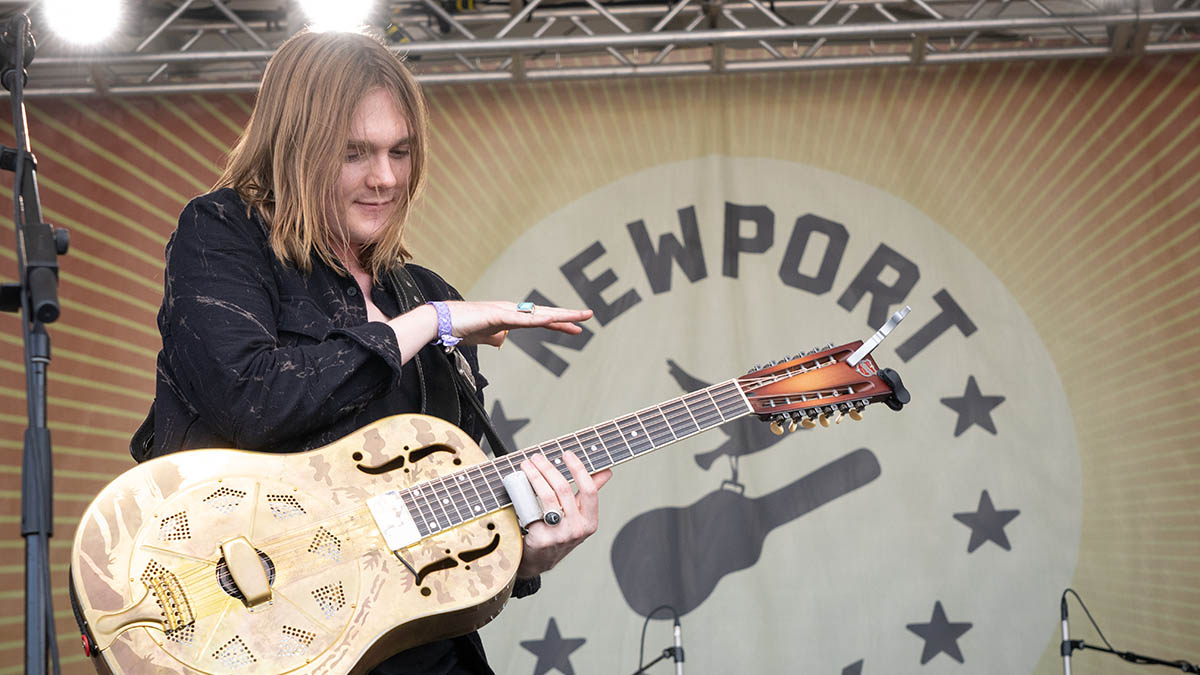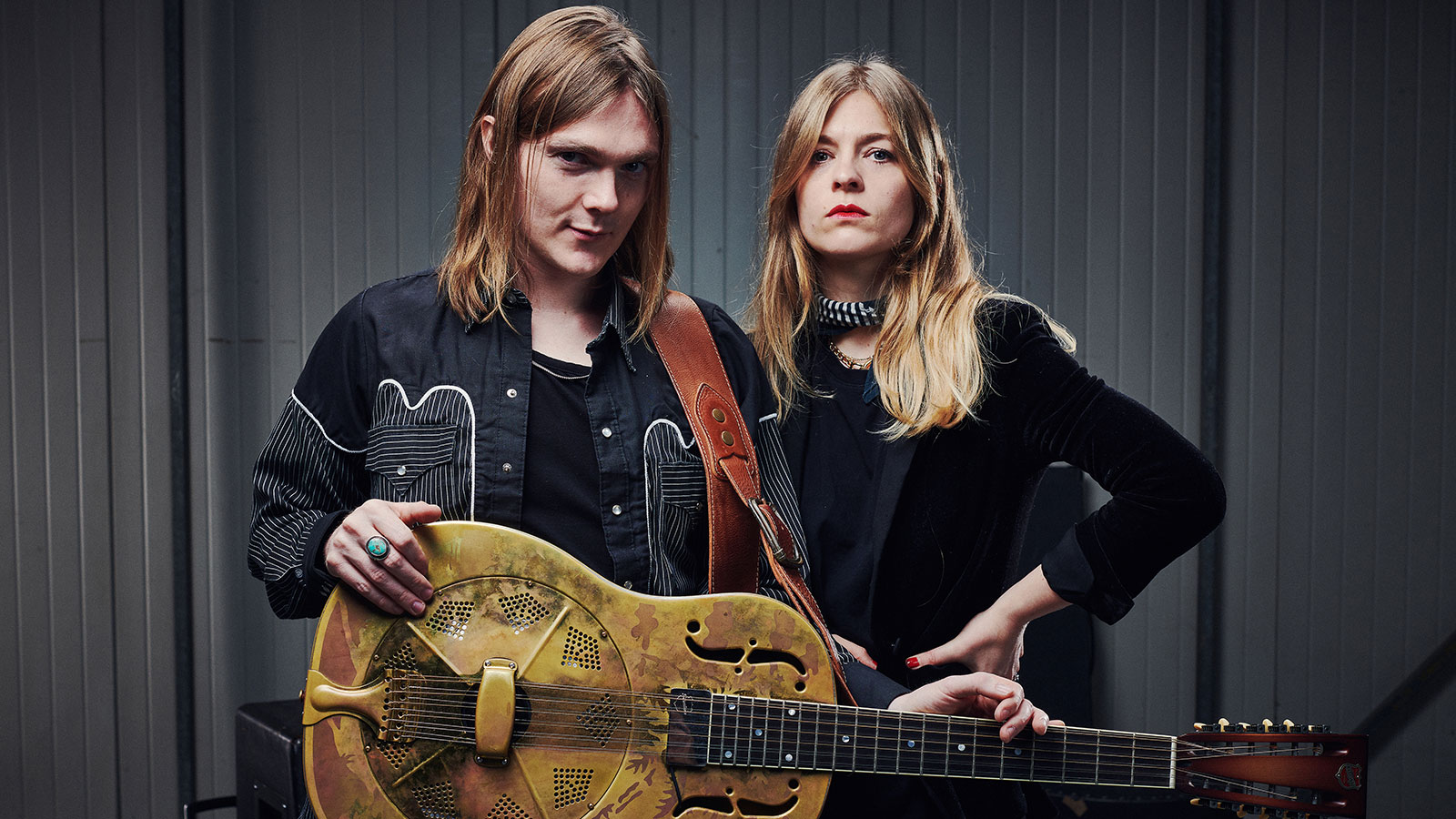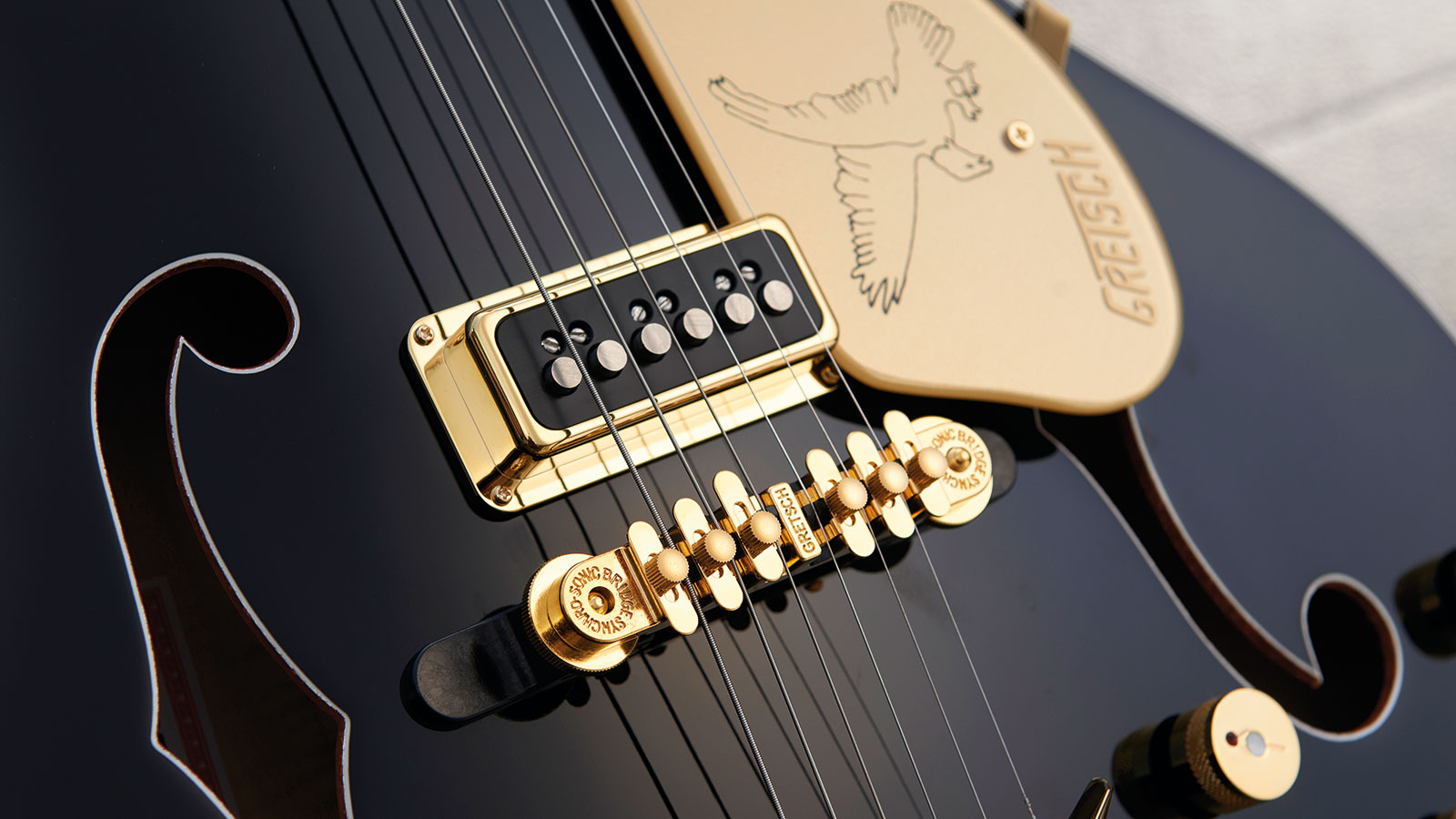Ida Mae’s Chris Turpin: “Most guitars are good for something. Even bad guitars can be fantastic because they force you to play a different way”
The British folk-blues guitarist talks lost Teles, ugly SuperStrats and the gear treasure trove that is Norwich Cash Converters...

Chris Turpin is the guitarist with UK husband and wife folk/delta blues duo, Ida Mae. Here he reflects on the ups and downs from a lifetime in guitar shops...
What was the first serious guitar you bought with your own money?
“It was a 1972 Telecaster Custom reissue. I bought it from Cash Converters in Norwich when I was 15, played my first shows with it, dropped it down the stairs, all sorts of shit. But it was a great guitar. I love that ’72 Tele look, y’know, that black Keith Richards-esque guitar where it’s got four knobs like a Gibson. I got some great shit out of that Cash Converters, like an old Paul Rivera Fender Twin and a JCM800 for, like, 300 quid!”
What was the last guitar you bought and why?
“I had this very old parlor guitar and I thought, ‘I have to retire this, it’s getting silly.’ So I was looking around for a new one, talking to my friends John Smith and Martin Simpson, and they turned me on to Fylde. Roger Bucknall is this crazy, wonderful Gandalf-type genius, and I have a custom-build parlor guitar by him called an Ariel.
“It has claro walnut back and sides, and a sinker redwood top. Basically, it’s when a redwood tree falls into a bog and, God knows how many thousands of years later, they pull it out, cut up the tree and it makes this incredible tonewood.”
What’s your best guitar-buying tip?
Get The Pick Newsletter
All the latest guitar news, interviews, lessons, reviews, deals and more, direct to your inbox!
“The biggest one for me is body resonance, especially with an electric. You put a bit of overdrive on, say, a Telecaster or a Les Paul-style guitar, turn the volume full up, then tap the body.
“Now, if you get that kind of resonant ‘thunk’ coming out of the amplifier, there’s a good sign that you’ve got a really ‘alive’-sounding instrument. If you turn it up to a medium gain, but you don’t hear much coming through the amp when you tap it – not for me!”
Put a bit of overdrive on, say, a Telecaster or a Les Paul-style guitar, turn the volume full up, then tap the body – you want that resonant ‘thunk’ coming out of the amplifier
What’s the most incredible find or bargain you’ve had when buying guitars?
“I’m one of these terrible eBay people. But I think the coolest one was when we were on tour with Greta Van Fleet and we had a show in Canada. I picked up a 1960s [Silvertone model 1445] Speed Demon for $300 – which is basically nothing – then just tuned it up and used it on stage that night. The crowd named the guitar ‘Maple’, too, which isn’t the most inventive name – but it works.”
What’s the strongest case of buyer’s remorse you’ve ever had after buying gear?
“I don’t get buyer’s remorse too much because every time I’ve bought something I wasn’t sure on I’ve just sold or swapped it. I did buy a Custom Shop Strat that someone had butchered and put really big frets in. It was Fiesta Red and really heavy. But I sold it for more than I bought it for, so not too much remorse there.”
Have you ever sold a guitar that you now intensely regret letting go of?
“I’d say that 1972 Telecaster I mentioned earlier, which is now owned by a good friend. I do occasionally get pangs to have that back. My friend gigs it, though, which makes it more awkward to ask for it back. I might send him this article, see if that works.”

Are there any common design features on electric guitars that are an instant turn-off for you when you’re auditioning potential new guitars?
“Most guitars are good for something. Even bad guitars can be fantastic because they force you to play a different way. But I don’t get on with super-fast guitars with blade necks and sharp, pointy angles.
“Whammy bars, locking tuners – it’s all a bit over the top for me. And those really horrible flame tops, like purple or neon green. If that’s your bag, I apologize, but I can’t get down with that. They look like they would drive too fast, and I’m not interested.”
When was the last time you stopped to look in a guitar shop window and what did you spot?
“I was outside Thunder Road Guitars in Seattle recently and they had a really cool single-pickup early Supro, kind of like a Dual-Tone. But I just couldn’t justify it. I’d say I’ve got just shy of 20 guitars now. I don’t know if that’s a lot these days. I feel like Joe Bonamassa has bought everything – twice!”
If forced to make a choice, would you rather buy a really good guitar and a cheap guitar amp – or a cheap guitar and a top-notch amp?
“Now, that’s an impossible question. If we’re talking a great 1952 Tele and a modern modeling amplifier, like a Fender Mustang, that would be amazing. Whereas a real cheap Encore or Squier going into a beautiful Twin Reverb, that wouldn’t be so cool. But if it was a cool old Supro – which could be a cheap guitar – into that same Twin Reverb, that would be really cool as well.”

If you could only use humbuckers or single coils for the rest of your life, which one would you choose and why?
“Definitely single coils. You can really load up single coils with overdrive and turn them almost humbucker-esque, but with a lot more nuance on the volume control. And I love the variety of single coils.
“I think the Gretsch Dynasonic – which no-one really talks about – is one of the greatest pickups ever designed. Then you’ve got Telecaster pickups, Strat pickups, and the options are endless when it comes to P-90s. Whereas, I find, if you have a muddy humbucker, there’s nowhere to go with it to make it better.”
I think the Gretsch Dynasonic – which no-one really talks about – is one of the greatest pickups ever designed
What’s your favorite guitar shop and why?
“One would be Carter Vintage Guitars in Nashville because we lived out there for four-and-a-half years and they were lovely to us. They’re a great shop with amazing stuff and they don’t have any attitude; you can hang out and play with all sorts of people in there.
“The other would be Vintage ‘n’ Rare in Bath, where I used to work. Just a fantastic guitar shop. Last time I stepped in there, they had a 1960 ’Burst, beautiful Fender Tweed amplifiers, really early 1920s Gibson acoustics. I still get the same shiver when I walk into a guitar shop as I did as a kid – it’s pathetic!”
- Click Click Domino is available now via Vow Road.
Henry Yates is a freelance journalist who has written about music for titles including The Guardian, Telegraph, NME, Classic Rock, Guitarist, Total Guitar and Metal Hammer. He is the author of Walter Trout's official biography, Rescued From Reality, a talking head on Times Radio and an interviewer who has spoken to Brian May, Jimmy Page, Ozzy Osbourne, Ronnie Wood, Dave Grohl and many more. As a guitarist with three decades' experience, he mostly plays a Fender Telecaster and Gibson Les Paul.
“It’s really quite genius, but also hard to learn – it sounds insane, but sometimes the easiest songs still get me nervous”: Kiki Wong reveals the Smashing Pumpkins song she had the most trouble with
That time Stevie Wonder jammed with Stevie Ray Vaughan... and played SRV's number one Strat











